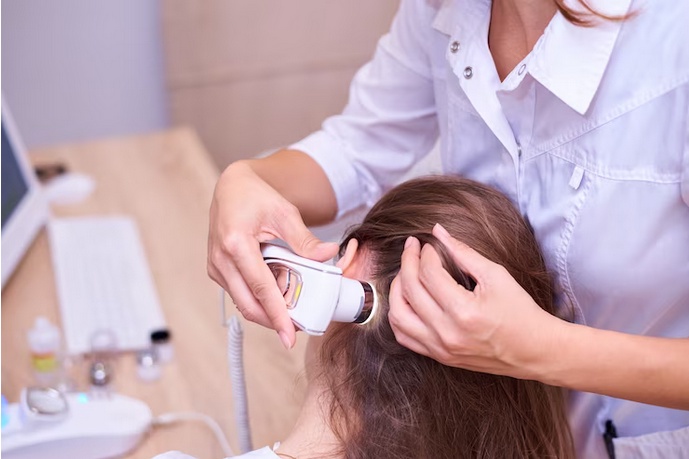Introduction
Hair loss is a common concern for people of all ages and genders. It can impact one's self-esteem and overall confidence. If you reside in Harrow or are considering a hair transplant in a similar location, this comprehensive guide will provide you with all the essential information you need to make an informed decision about this procedure.
Understanding Hair Transplants
Hair transplant is a surgical procedure designed to address hair loss and restore natural hair growth. It involves the removal of hair follicles from a donor site (usually the back or sides of the scalp) and their transplantation into the areas with hair loss (recipient site). The two most common types of hair transplant procedures are Follicular Unit Transplantation (FUT) and Follicular Unit Extraction (FUE).
Follicular Unit Transplantation (FUT): FUT involves the removal of a strip of scalp from the donor area. The hair follicles are then dissected from this strip and transplanted into the recipient site. This method may leave a linear scar at the donor site.
Follicular Unit Extraction (FUE): FUE is a minimally invasive technique where individual hair follicles are extracted from the donor area using a small punch tool. This method does not leave a linear scar and is preferred by many patients.
Is a Hair Transplant Right for You?
Hair transplants can be a suitable option for individuals who meet certain criteria:
Stable Hair Loss: Candidates should have stable hair loss, meaning that their hair loss has not progressed significantly in the past year. It's essential to address the underlying cause of hair loss before considering a transplant.
Sufficient Donor Hair: A successful hair transplant relies on having an adequate supply of donor hair. The density and quality of donor hair will influence the results.
Realistic Expectations: Patients must have realistic expectations about the outcomes of a hair transplant. While it can significantly improve hair density, it may not restore a full head of hair.
Good General Health: Candidates should be in good overall health to undergo the surgical procedure. It's crucial to disclose any medical conditions and medications to your surgeon.
No Contraindications: Certain medical conditions or medications may contraindicate a hair transplant. It's essential to consult with a qualified surgeon who can assess your specific situation.
Choosing a Hair Transplant Surgeon in Harrow
Selecting the right surgeon is a critical step in the hair transplant process. Here are some key considerations when choosing a hair transplant surgeon in Harrow:
Board Certification: Ensure that the surgeon is board-certified and has the necessary qualifications and training in hair transplantation.
Experience: Experience matters in hair transplantation. Ask about the surgeon's experience, including the number of procedures performed and their success rates.
Before and After Photos: Review before and after photos of previous patients to get a sense of the surgeon's work and the potential results.
Patient Reviews: Read patient reviews and testimonials to gauge patient satisfaction and the surgeon's reputation.
Consultation: Schedule a consultation with the surgeon to discuss your goals, expectations, and the suitability of the procedure for your specific case.
Facility and Technology: Ensure that the surgical facility is accredited and equipped with the latest technology for safe and effective procedures.
Cost: Discuss the cost of the procedure, including any additional fees, during the consultation. Be cautious of unusually low prices, as quality should be a priority.
The Hair Transplant Procedure
Once you've chosen a qualified surgeon and decided to proceed with a hair transplant, it's crucial to understand the steps involved in the procedure:
Consultation: During the initial consultation, the surgeon will assess your hair loss, donor hair, and discuss your goals. They will create a customized treatment plan.
Preparation: On the day of the procedure, the donor area is usually trimmed, and you may receive local anesthesia to numb the scalp.
Extraction: In the case of FUT, a strip of scalp is removed, and the hair follicles are dissected under a microscope. In FUE, individual hair follicles are extracted using a small punch tool.
Recipient Site Preparation: Tiny incisions are made in the recipient area to receive the transplanted follicles. The surgeon's skill in creating natural-looking hairlines is crucial at this stage.
Transplantation: The extracted hair follicles are carefully transplanted into the recipient incisions. The surgeon pays attention to the angle and direction of hair growth for a natural appearance.
Recovery: After the procedure, you'll be given post-operative care instructions. It's normal to experience some swelling, discomfort, and scabbing in the days following the surgery.
Results: Hair growth typically begins in a few months, and the full results become noticeable within 9 to 12 months.
Risks and Considerations
Like any surgical procedure, hair transplants come with potential risks and considerations:
Scarring: FUT may leave a linear scar at the donor site. FUE leaves tiny, round scars that are less noticeable.
Infection: While rare, infection is a possible complication after a hair transplant.
Bleeding: Some bleeding is expected during and after the procedure, but excessive bleeding should be reported to the surgeon.
Numbness: Temporary numbness in the donor and recipient areas is common but usually resolves over time.
Shock Loss: Some existing hair may temporarily fall out in the recipient area but typically regrows.
Unnatural Appearance: Inexperienced surgeons may create an unnatural appearance, highlighting the importance of choosing a skilled surgeon.
Conclusion
A hair transplant in Harrow can be a life-changing solution for those struggling with hair loss. To determine if it's the right choice for you, consider factors such as the stability of your hair loss, the availability of donor hair, and your overall health. Selecting a qualified and experienced surgeon is paramount to achieving natural-looking results.
Remember that hair transplantation is a significant decision, and it's essential to have realistic expectations about the outcomes. While it may not restore a full head of hair, it can greatly improve hair density and enhance your self-confidence. Carefully research and consult with a reputable surgeon to embark on your hair restoration journey.


No comments yet